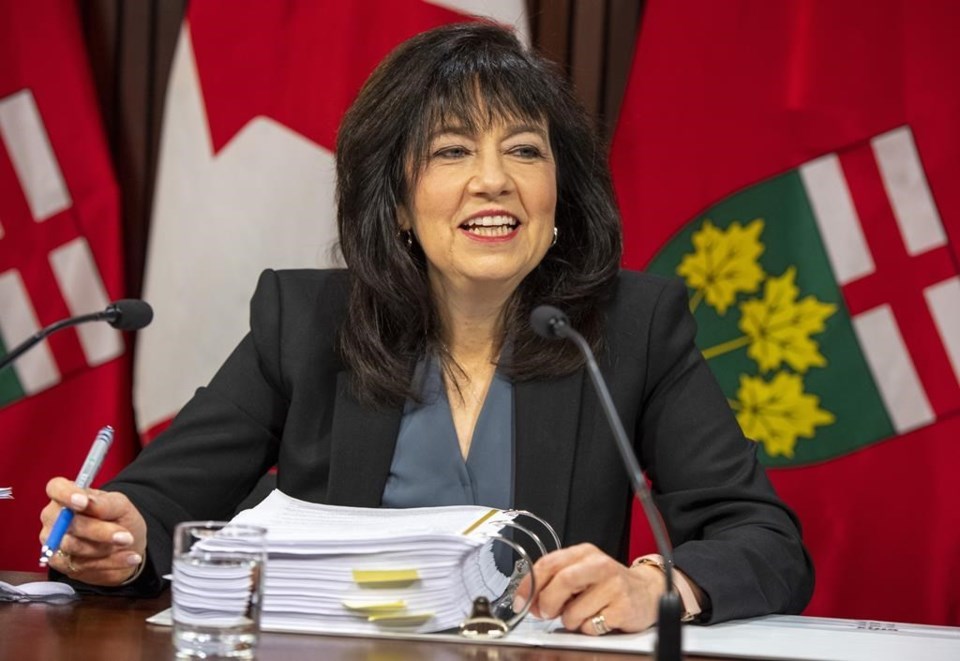This article originally appeared on The Trillium, a Village Media website devoted exclusively to covering provincial politics at Queen’s Park.
Worsening degradation of wetlands in southern Ontario is among the immediate threats facing Ontario's environment, according to a new environmental report by the province's auditor general.
Wetlands are areas that are seasonally or permanently covered by shallow water, or that hold water close to the surface. Marshes, swamps and bogs are all wetlands. They mitigate the effects of climate change by storing carbon, help reduce flood impacts by taking on water, and naturally filter water vital to species' habitats.
Nearly three-quarters of southern Ontario's former wetlands are gone today, the report released by auditor general Bonnie Lysyk's office on Tuesday said. Prior to the 1800s, when population growth in settlements that became part of southern Ontario began rapidly increasing, the region had an abundance of wetlands. While much of the loss of these lands' natural characteristics is due to early European settlers' conversion of them into farms and towns, the replacement and degradation of wetlands have continued over the last couple of decades, according to Lysyk's report.
About 13,455 hectares of wetlands — or 1.3 per cent of the previous wetland cover — were lost in southern Ontario from 2000 to 2015, according to wetland data found in the auditor's report, which came from the Ministry of Natural Resources and Forestry. Annual wetland loss (1,825 hectares/year) between 2011 and 2015 was three times higher than from 2000 to 2011.
The Rogers Centre, where the Blue Jays play in Toronto, occupies about 3.21 hectares of land, meaning Ontario's wetland loss from 2000 to 2015 was roughly equal to about 4,200 Rogers Centres-worth of land.
The 132-page report published by Lysyk's office on the state of the environment in Ontario was organized into five sections, looking at the state of the province's air, water, land and waste, climate, and nature and wildlife. For each area, the auditor wrote about how changes affect human health and summarized the progress the Ontario government is making toward targets for improving the status of each.
Wetlands are mentioned in different sections throughout the report but mainly are written about in the section on the status of Ontario's nature and wildlife.
In it, the report notes that the province's previous Liberal government unveiled a 13-year wetland-conservation strategy in 2017 that set targets aimed at eventually ending the net loss of wetlands in southern Ontario by 2025, and achieving a net gain by 2030.
In August 2021, under Premier Doug Ford's Progressive Conservative government, the Ministry of Natural Resources told the auditor's general office that it cancelled this strategy and its targets. The ministry no longer has a way to measure the "quality and function of remaining wetlands," Lysyk's report says. This could make it harder for the government to designate which wetlands are important and effects its understanding of carbon storage in Ontario.
In one of her audits from last year, Lysyk's office found that the provincial government's uncoordinated approach to reducing flooding increased "the risk to homes and business of millions of Ontarians." The government's management of Ontario's wetlands was a main focus of the 2022 report on reducing flood risk. Lysyk's audit included recommendations to the government for preserving wetlands, which it did not accept.
"Wetlands are managed through a diverse array of policies, programs, ministries, etc. Any changes to wetland policies and programs would be considered within the scope of broader government direction," said the Natural Resources Ministry's response.
On Tuesday, while answering journalists' questions at Queen's Park after releasing her state of the environment report, Lysyk said "now (that) we're in a time of development, I think it becomes important to think about the land use both for agricultural purposes, for wetlands, for forests — all in the spirit of prospering Ontario economically."
Reacting to the report shortly after on Tuesday, Green Leader Mike Schreiner identified the loss of wetlands and the government's removal of its wetland-conservation targets as some of his biggest concerns. The Ontario NDP also criticized the government in a press release for abandoning provincial preservation targets.
Also on Tuesday, Ontario's Environment Minister David Piccini defended the Ford government's conservation efforts by pointing to a pair of its programs.
The first, its Wetlands Conservation Partner Program, announced in late 2020 and promised $30 million over five years to conservation organizations that create and restore wetlands and help municipalities manage stormwater.
The other, its Greenlands Conservation Partnership relies on similar organizations to "restore and manage natural areas such as wetlands, grasslands and forests," as a government press release describes it. Originally announced in 2021 as a four-year $20-million program, the Ford government announced a one-year $14-million funding boost for this program in its 2023 budget.
While speaking to journalists at Queen's Park, Piccini said the Wetlands Conservation Partner Program had enabled the expansion of 11,000 hockey rinks-worth of wetlands. Based on the size of an NHL rink, that'd mean the program has facilitated about 1,750 hectares of wetland expansion, which is less than the average wetland loss in Ontario each year from 2011 to 2015.
—With files from Jack Hauen



